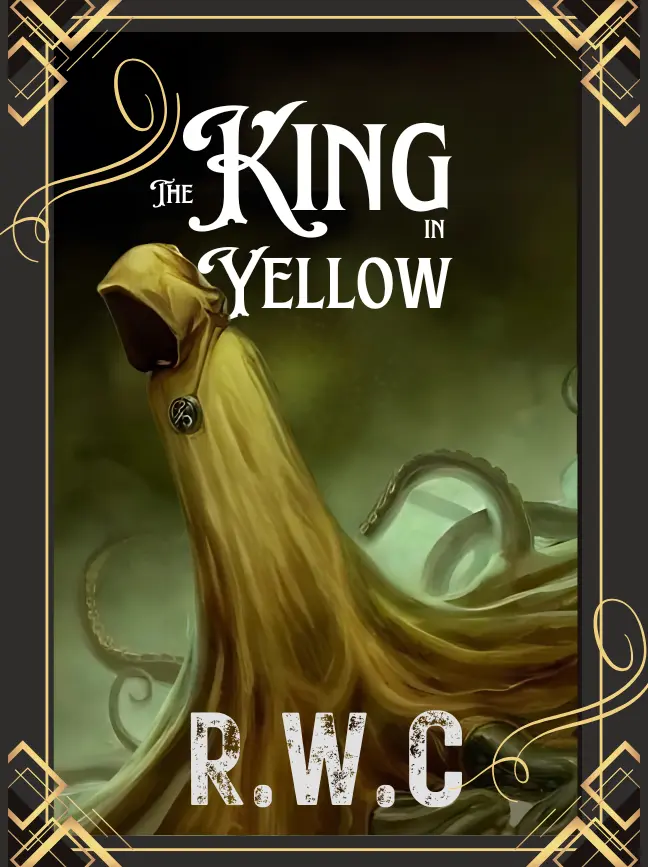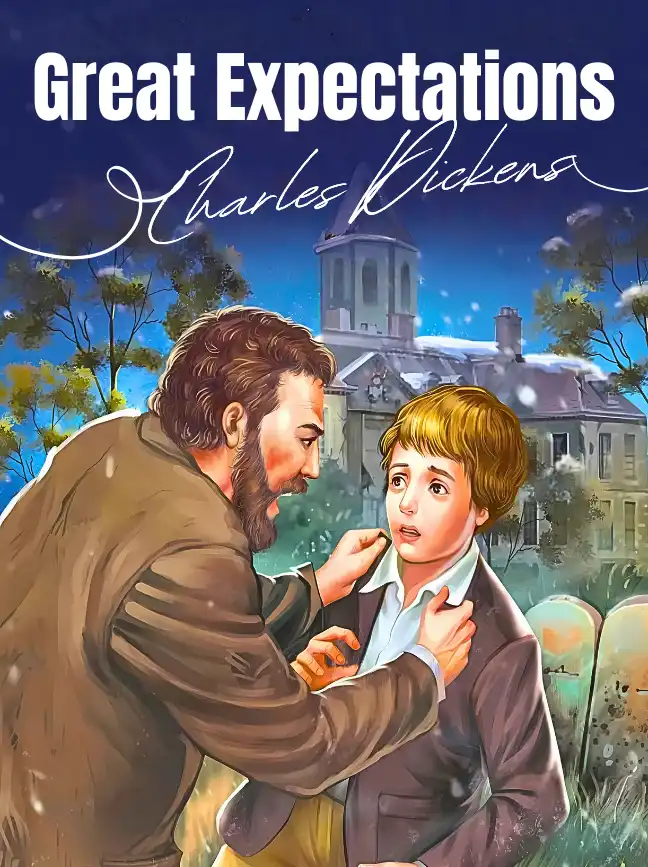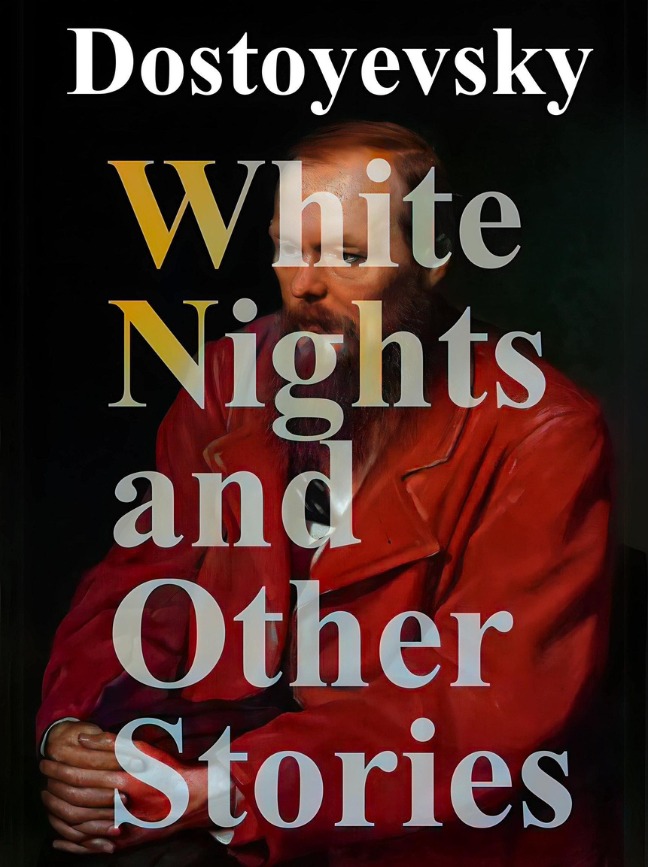Around evening, Jinshi came to her with an extraordinary story. “I’m
sorry to trouble you,” he began, which was striking enough in itself. Normally, he didn’t seem to care how much trouble he was causing Maomao at any given time. The preface, though, had the effect of piquing Maomao’s interest.
At issue, it seemed, was a dispute having to do with an acquaintance of an acquaintance of Jinshi’s. Something that was almost, though not quite, a family squabble. A craftsman had died without conveying his most important secrets to his disciples—who also happened to be his sons.
Among those secrets was a technique never divulged to any outsiders. “So all we have to do is figure out this metalworker’s most secret art.
Yes?” Maomao said.
“Gee, when you put it that way, it sounds so simple! I must say, though, you seem uncommonly eager.”
“Do I?” Maomao asked, averting her eyes.
Here’s what Jinshi had told her: The metalworker had three disciples, all of whom were his blood sons and all of whom were respectable craftsmen in their own right. Their father had held a special commission from the palace, and with him gone, there was talk that one of his boys might succeed him. The father had left a will providing an inheritance for each of his children. His eldest son received a small workshop, the second-eldest a piece of furniture his father had decorated, and the third, a goldfish bowl.
The will also contained one cryptic suggestion: Would that you boys would sit down and share tea together like you used to.
“What a very intriguing final testament,” Maomao commented. She had no idea whether it was intended literally, or if there was something else at work.
“It is. And evidently it’s just as opaque to the young men as it is to us.”
Maomao nodded thoughtfully. “I must say, the division of the inheritance doesn’t seem very fair.”
The family’s main house was still occupied by the boys’ mother, so it wasn’t included in the will, but when one child got a workshop, another got furniture, and the third received a goldfish bowl, well, it was hard not to think the last child got a raw deal.
“Do you know anything about this goldfish bowl?”
“I’m afraid I don’t. But if you’re curious, you could pay them a visit. I have the address.” What fine preparation on Jinshi’s part. He must have assumed it would come to this.
“Then perhaps if I could be spared for a while tomorrow?” Maomao said with a discreet glance at Suiren. The old lady-in-waiting waved a hand as if to say Have fun, but Maomao suspected she would find her workload increased more than ever in the days to come.
The craftsmen’s house was past the far end of the great main thoroughfare that ran through the capital. Situated in an area full of shops, it was an impressive place, with a great chestnut tree standing in the yard.
Jinshi and Gaoshun were not with Maomao; instead, the same young man who had accompanied her when she was investigating the case of the poisonous fish was there. His name was Basen.
Doesn’t seem like he thinks much of me, Maomao thought, observing how he only spoke the absolute minimum necessary to her. It came across less as reticence than as active disdain. But Maomao was perfectly happy with that, so long as it didn’t interfere with her work. It wasn’t their job to make friends with each other.
“I’ve spoken to the family, and they’re willing to accommodate us,” Basen said. “Outwardly, however, I’m the one who’s here to ask the questions. You’re my attendant.”
“Very well.” Better, even, Maomao thought: this was ideal. They arrived at the house, Maomao pattering obediently behind Basen, and when they knocked on the door a member of the family appeared, a grim-looking man of some twenty years old or so.
“I heard you were coming,” the man said, ushering Maomao and Basen into the house politely despite his dark demeanor. Within, the home gave much the same impression as it did from outside, tidy and well-maintained. Small arrangements of flowers were placed here and there. In a recess in one wall was an unusual object: what appeared to be a chunk of rock
ornamented with metal that seemed to shine with a faint bluish hue. Maomao studied the object intently. “Oh, that thing,” the sullen man said, coming over to her. “Father bought that when he was getting some
materials. He always did have a soft spot for…strange things.” For the first time, a hint of joy entered the man’s face.
They left the main house and proceeded down a covered walkway. Near a building Maomao took to be a small workshop, they found two more men. One was tall, one was a bit round, and both looked as morose as the first.
“Here they are, dear elder brothers,” their host said. From his respectful tone, Maomao guessed that their guide was the youngest brother. He at least had the decency to act polite; his two siblings looked downright hostile.
When Maomao and Basen approached, they quickly concluded a muttered conversation and showed the visitors into the workshop.
The interior of the workshop was pleasant, tools all neatly in their places. The men told Maomao and Basen that the real workshop was in the main house; they hadn’t used this place in quite some time. Now it was a repository of old tools where the craftsmen sometimes took tea.
“What an odd arrangement,” Basen said, looking around the room.
Maomao silently agreed. Smack in the middle of the space was a chest of drawers. It looked like it could only be in the way sitting there, but closer inspection revealed delicate decorations. The overall shape was not quite like anything Maomao had ever seen, either, making it seem rather at the forefront of furnishing fashion. It almost made the chest look good, sitting there in the middle of everything. Tables were set up around it, the whole arrangement surprisingly unified.
The corners of the chest were nicely rounded, with worked metal adornments on them. The topmost of the three rows of drawers had keyholes, as did the center drawer, each one accented with a different metal. The plump brother came over to Maomao, who was studying the chest intently, and said in a quiet voice, “You’re welcome to look, but keep your hands off.”
She dipped her head in acknowledgment and took a step back. She recalled that the dead craftsman’s will had included a bequest of furniture to the second-oldest son. Was this the piece in question? Presumably that would make her interlocutor the second son himself.
Her supposition was soon bolstered: the youngest son came over holding
something clear and round.
“Do you really think you can make heads or tails of these odds and ends our father left us?” the tall man, most likely the eldest son, asked Basen.
Basen took a peek at Maomao, who nodded and jerked her head in the direction of the three brothers. She couldn’t be sure whether he took her meaning, but he looked at the young men and replied as calmly as anything, “I’m afraid I won’t be able to say until I’ve heard a little more.”
Then he sat down in a chair. Maomao stood behind him, taking the opportunity for a fresh look around the room. The architecture really is strange, she thought. For one thing, the window was in an unusual place. It was uncommonly tall (perhaps it was supposed to be in the western style?), which would allow more than ample sunlight into the room. There was just one problem: the giant chestnut tree outside blocked all the light. Only what could filter past its leaves made it into the room, except in one particular spot. She could tell as much by the faded color of the shelf hanging from the wall, although there was a square space still in the original color betraying that something must have sat there for a very long time, until just recently.
While Maomao scanned the room, the lanky elder brother entertained Basen. “We’ve already told you everything there is to know,” he said. “Our father departed this world never having told us his deepest secret. And then he left me with this workshop.”
“And me with these drawers,” the second son said, slapping the chest demonstratively.
“And me, I only have this.” The youngest son held out the clear, round thing. Now they could see that it was made of thin glass, with a flat bottom. Jinshi had said the youngest son had received a goldfish bowl, but Maomao hadn’t pictured something made of glass. She’d imagined something primarily of wood, or at least ceramic. Now she could see that at least each of the sons had received something of some value. Yet even so there seemed an unmistakable disparity, a chilling distance, between the bequests of the first two sons and that of the third.
What’s going on here? Maomao looked from one man to the next. Each had calluses on his hands bespeaking a craftsperson, but the hands of the youngest son particularly caught her attention. They had a succession of unusual red welts on them. Burns just starting to heal?
The second son heaved a sigh and ran his hand along the chest of drawers. “Don’t know what the old man was thinking. He leaves me this whole chest, but there’s only one key…and it doesn’t fit any of the locks!”
Maomao followed the man’s gaze to several metal fasteners on the
bottom of the chest. Evidently it was secured to the floor. The key appeared to go to the centermost drawer, but the man insisted it wouldn’t fit. The remaining three drawers all opened with the same key—one they evidently didn’t have.
“Look at this,” the second son said irritably, indicating the fastenings. “I can’t take this thing anywhere. So what am I supposed to do with it stuck in my brother’s workshop?”
The oldest brother nodded as if to say he felt the same way. Only the youngest sibling looked unsure. “But father said to have tea like we used to, didn’t he?”
The other two looked at him like they’d had this conversation before. “Easy for you to say. You’re the lucky one. Your bequest is like money in your pocket.”
“Yeah, just your luck. Pawn that thing off and it’ll keep you eating fancy for a good long time.”
The two older brothers sounded like they were trying to chase off a mangy dog. Maomao considered things. She gave Basen a gentle tap to urge him to ask another question. He frowned, but did what he was supposed to do. “If I may,” he said, turning toward the brothers, “could you tell me again about your father’s last message to you?”
“Just like the kid said,” one of the older brothers replied.
“Yeah, have a tea party, just like we used to. Whatever the hell that’s supposed to mean.”
Maybe it was an exhortation for the three of them to get along. It would be very fatherly advice to leave behind. But Maomao had no way to be sure what he meant, nor did she think they were going to get anywhere simply contemplating the three bequests. She was just pondering what to do when the young men’s mother appeared with a tray. She set cups of tea for each of them on the long table in the center of the room.
“Here you are,” was all she said before leaving again. Three cups were lined up on one side of the long table, with two more across from them, leaving the space in front of the chest of drawers open. The two cups were
presumably for Maomao and Basen. The brothers sat, but not wherever was closest; they each moved to a particular spot, suggesting they had occupied those seats for some long time.
Hm, Maomao thought. Light streamed in through the tall window, stretching out toward the chest. The seat in front of it was vacant— considering the time of day, the sun would have been too bright for anyone to sit there for tea. Just a little farther, and the sunlight would brush the chest, but there was no sign of fading on the wood. Evidently the sun never reached that far.
Signs of fading? Maomao stood up from her seat and looked at the window. With the big tree outside, the light wouldn’t actually fall into the room for very long. She stood in front of the window and peered at the chest of drawers. The position of the lock nagged at her. Not the keyholes
on the three uppermost drawers, but the middle row, where only one drawer was locked.
She advanced toward the chest with curiosity, drawing perplexed looks from the siblings. Basen pressed a hand to his forehead and looked down. The gesture was distinctly familiar; Maomao realized with a start that he looked much like Gaoshun.
Basen sighed and looked at Maomao with undisguised displeasure. “You’ve found a clue?”
“That drawer with the keyhole won’t open, is that right?”
“It used to, but Father fiddled around with it enough that now it won’t,” the second son responded.
“And there’s only one key?”
“This is it. And our old man told us—I guess you know by now how he loved to say things that don’t make sense—he said that if we break the lock, whatever’s inside will break too. So we can’t just go smashing it.”
Maomao positioned herself in front of the chest and examined the keyhole. She had the impression that something was packed inside. Maybe there’s a reason the chest is stuck to the floor too, she thought,
turning over what she knew in her mind. The bequests to the three brothers: the workshop, the chest, the bowl. The drawer that wouldn’t open. And…
Maomao looked at the youngest brother’s goldfish bowl. “Pardon my asking, but did that bowl used to sit on that shelf there?” she said.
“Er, y-yes, yes, it did.” The younger brother walked over to the window,
still holding his bowl. He folded a handkerchief and placed it on the faded spot, then set the bowl on top of it. “We used to keep a goldfish here. But the cold would kill it, so in the winter, we only put it here at noon, when it was warmest. We haven’t had a goldfish in years, though. This bowl has been nothing but a decoration.” He smiled, a bit sadly.
Hmmm. Maomao gave the arrangement a calculating look, then left the workshop.
“H-Hey, where are you going?” Basen demanded.
“Just to get some water,” Maomao said. She returned shortly thereafter and poured the water into the goldfish bowl. “I presume it once had water in it, like this.”
“Yes, that’s right. And the design on the side was always pointed toward us, like this.”
Thought so, Maomao said to herself, looking again at the bowl. Light entered through the window and struck the goldfish bowl. From there, it was focused on a single point: the chest of drawers. Specifically, the center lock, which glittered in the beam of sunlight.
“May I further presume this is the exact time of day at which you customarily took tea?”
“H-Hey! What’s going on here?” the second-oldest brother said, stepping between the bowl and the chest.
“Stay back!” Maomao shouted, more vehemently than she’d meant to. It was effective, though: the big man suddenly seemed to become smaller.
“Pardon me,” Maomao said. “If the beam gets in your eyes, you might go blind. And I need this space to be clear, so please, keep your distance. Otherwise the lock won’t open.” She watched them both closely, lock and light, and waited.
No one knew exactly how long it took; no one was counting. The light reflected from the goldfish bowl moved bit by bit, working its way around the lock. At length, the light disappeared; blocked by the chestnut tree, Maomao supposed. Now she inspected the lock critically. The metal was warm to the touch, and she detected a strange odor.
“What’s the meaning of this?” someone asked, but Maomao replied only, “By any chance, did the deceased suffer from anemia and stomachaches?”
“Yes, he did…”
“And perhaps you observed vomiting and fits of lethargy?”
The way the three brothers looked at each other in response to this question convinced Maomao she was on the mark. Then she remembered the strange objet d’art, the crystal.
“I’m not very knowledgeable about metalwork, but was soldering done here as well?”
“Yes…”
“All right. Please open the drawer with the key.”
“I told you, it doesn’t fit,” the second son grumbled, but he nonetheless slid the key into the lock. It fit as naturally as anything. The man, startled, turned the key and was rewarded with a clicking sound.
“Wh-What happened?” the eldest son said, while his brothers looked on in amazement. Even Basen appeared suitably impressed.
“Nothing special,” Maomao said. “We simply followed your father’s last request. You all had tea together, just as you used to.” Then she removed the drawer from the chest and set it on the table where everyone could see it. It contained a key-shaped mold, which was giving off a dull glow. Strikingly,
it contained metal that was still warm. Maomao tapped the metal with her finger, checking the hardness. “May I remove this?” she asked.
“Y-Yeah, sure…”
With the brothers’ consent, she took the key out of the mold, feeling the last of the radiant warmth against her hand. When she tried it in the chest, it fit neatly in the locks in all three drawers. She opened each of them in turn, provoking more perplexed looks and expressions of surprise.
“Wh-What’s this stuff?”
The first two of the drawers, all of which varied in size, contained metal and something that looked like crystal. In the largest drawer was a bluish gem like the one that had decorated the entryway of the house.
“I’m afraid I don’t know. I’ve only done as we were told.” Maomao
shook her head and placed the three lumps on the table. There was nothing more for her to say.
“Dammit. Be friendly to each other, he says! Like hell! Father just couldn’t resist pulling one last prank on us!” the elder son exclaimed.
“He must have been laughing all the way to his grave!” said the second. The third man, though, the youngest, was silent as he looked at the three
lumps. Then he studied the drawers from the chest. Maomao saw his hands again, with their half-healed burns. His older brothers had no marks on their fingers.
Apprentice see, apprentice do, perhaps? she wondered. She remembered the words: they’d been spoken by someone who had visited her father, someone who’d had the unmistakable air of a craftsman about him. She also remembered taking the advice to heart, trying to mix the herbs her father had brought by imitating what she thought she’d seen him do—and ultimately poisoning herself. In the future, her father insisted, she should ask him first.
Maomao suspected this youngest child was the only one who saw what the old craftsman had been after. Soldering involved mixing several different types of metal together so that they would melt at a lower temperature than normal. Maomao knew of one such possible combination: lead and tin. Why in the world did she know this? Because lead was poisonous, of course. She’d once seen a metalworker who had poisoned himself melting lead. Then there was the face-whitening powder that had been popular in the rear palace: her father had told her that it was lead- based.
What if two of the three lumps of metal were lead and tin, and by
mixing them with the third lump, a new metal entirely could be created? The goldfish bowl had focused the light, true enough, but not for very long.
The metal’s melting point was evidently very low. And finally, perhaps
most importantly, the old craftsman had made the drawers different sizes, it seemed quite deliberately.
Maomao was sure she didn’t have to say anything further, but there was one thing she wanted to add. She walked over and addressed the youngest brother. “At an establishment called the Verdigris House in the pleasure district, there’s an apothecary named Luomen. A healer of substantial accomplishment. If you ever feel unwell, please let me recommend that you visit him.”
“Uh—y-yes, thank you,” the young man said, surprised by the unsolicited advice. Maomao bowed her head slowly; the youngest brother politely said farewell while the other two continued to bicker. Maomao left them all behind.
She noticed the look on Basen’s face; he seemed no more pleased now
than ever. She realized perhaps she’d overstepped herself, and took up walking behind him. Whatever happened after this had nothing to do with Maomao. Whether the clever third son chose to show generosity, or else to keep the hard-won secret to himself, was all the same to her.








